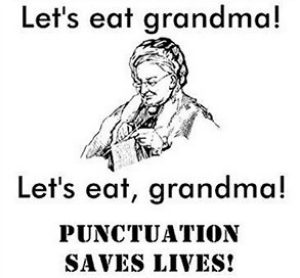Whether or not you're feeling the #PunctuationDay love, it's crucial to know your way around a comma.
As the memes and greeting cards say, "Good grammar is like personal hygiene. You can ignore it if you want, but don't be surprised when people draw their own conclusions."
Happily Laura Dunbar, assistant coordinator of the Department of English's composition and professional writing programs, is here to help. Here are the mistakes she most often comes across — and her advice on how to fix them.
